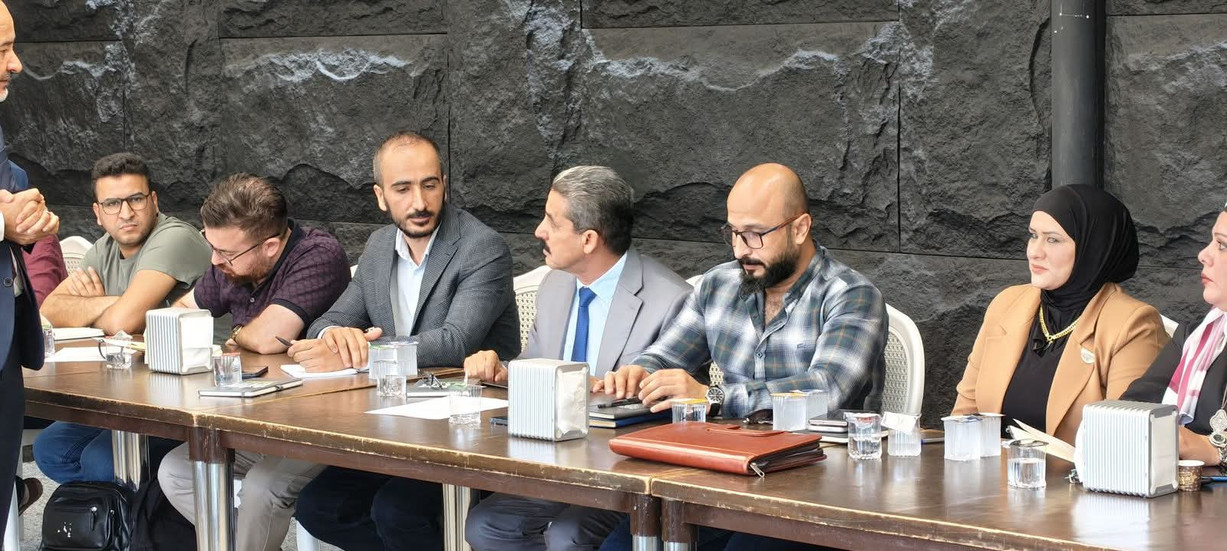When Nineveh Listens, the Path to Return Begins
- Public Relations Dept.

- Jul 25
- 2 min read
Updated: Jul 27
Some conversations don’t need a stage. Sometimes, it’s enough to sit around a table—with someone who has lived through displacement, someone who has returned unsure of being welcomed back, and someone who works daily on the ground—to realize that “return” is not a simple administrative process, but a deeply human equation.
On July 21, 2025, the Engineers Club Hall in Mosul hosted a high-level dialogue session titled:“Reintegration, Countering Violent Extremism, and Peacebuilding in Nineveh.”
The session was organized by the Subcommittee for Countering Violent Extremism, in collaboration with the Peace and Freedom Organization and the Center for Peacebuilding and Coexistence at the University of Mosul.
Mercy Hands for Humanitarian Aid was among the participants, joining a rich mix of actors from the UN, local authorities, academics, and civil society.
Reintegration Is Not a Road — It’s a Community to Rebuild
The discussions went far beyond formalities. Participants explored the emotional, psychological, and social dimensions of reintegrating returnees from displacement camps, highlighting how return is not a matter of relocation—it’s a process of rebuilding trust, dignity, and collective belonging.
A key takeaway that resonated throughout the session:“Reintegration cannot be prescribed—it must be co-created.”And that process starts by listening—to the fears, hopes, and aspirations of both returnees and host communities.
What Made This Dialogue Stand Out?
This was not a technical meeting, nor a routine consultation. It was a genuine, grounded dialogue where field perspectives, institutional experience, and community realities met at a single table.
Mercy Hands contributed a grounded lens shaped by years of field experience in Nineveh—anchored in the belief that sustainable initiatives begin where consultation begins.
“Actors who build from within—who listen first and speak last—are often the ones who quietly reshape outcomes.”
Where Partnerships Are Shaped Without Being Requested
Mercy Hands’ participation was purposeful—contributing ideas, asking the right questions, and engaging with sincerity. This kind of presence does not seek visibility for its own sake but adds quiet value where it matters most.
In fragile contexts like Nineveh, donors increasingly look beyond capacity—they look for integrity, insight, and long-standing community trust. And those who hold these qualities rarely need to ask for partnerships. Partnership finds them.
Participants from diverse backgrounds gathered in Mosul to discuss displacement and reintegration pathways.














Comments